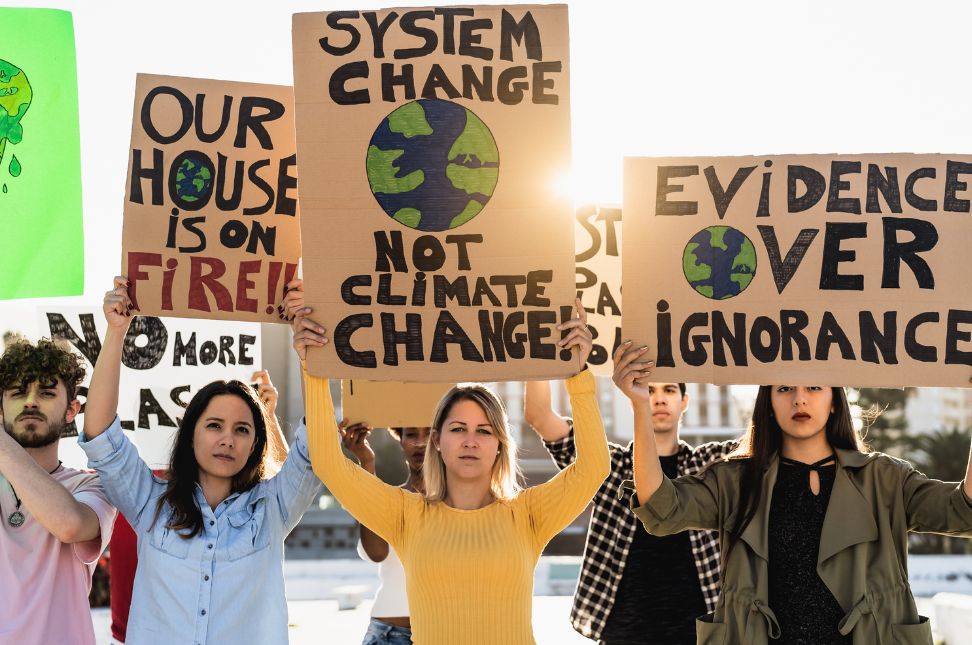The impact of climate change on health is a growing concern for individuals and communities worldwide. As the planet warms and weather patterns shift, the consequences for human health are becoming increasingly evident. This article explores the various ways in which climate change affects health, highlighting the urgency of addressing this global issue.
Direct Health Effects
One of the most immediate impact of climate change on health is the increase in extreme weather events. Heatwaves, hurricanes, floods, and droughts are becoming more frequent and severe. These events can lead to direct injuries, deaths, and mental health issues. For example, heatwaves can cause heatstroke and exacerbate cardiovascular and respiratory diseases, while floods can result in drowning, injuries, and the spread of waterborne diseases.
Air Quality and Respiratory Health
Climate change significantly affects air quality, which in turn impacts respiratory health. Rising temperatures and increased CO2 levels contribute to higher concentrations of ground-level ozone and particulate matter. These pollutants can aggravate conditions such as asthma, bronchitis, and other chronic respiratory diseases. Additionally, wildfires, which are becoming more frequent and intense due to climate change, release vast amounts of smoke and pollutants, further degrading air quality.
Vector-Borne Diseases
The impact of climate change on health includes the spread of vector-borne diseases. As temperatures rise and precipitation patterns change, the habitats of mosquitoes, ticks, and other disease vectors expand. This increases the risk of diseases such as malaria, dengue fever, Lyme disease, and Zika virus. Warmer temperatures can also shorten the incubation period of these pathogens, leading to more rapid disease transmission.
Water and Food Security

Climate change affects water and food security, with significant health implications. Changes in precipitation patterns can lead to water scarcity and poor water quality. Droughts can reduce agricultural yields, while floods can contaminate water supplies with pathogens and chemicals. These factors contribute to malnutrition, dehydration, and waterborne diseases. In regions where food and water insecurity are already prevalent, climate change exacerbates these challenges, leading to increased morbidity and mortality.
Mental Health
The impact of climate change on health extends to mental health. Natural disasters, displacement, and the loss of livelihoods due to climate-related events can lead to anxiety, depression, and post-traumatic stress disorder (PTSD). The uncertainty and stress associated with climate change can also contribute to mental health issues, particularly among vulnerable populations such as children, the elderly, and those with preexisting mental health conditions.
Vulnerable Populations
Certain populations are more vulnerable to the health impacts of climate change. These include the elderly, children, low-income communities, and people with chronic health conditions. For instance, the elderly are more susceptible to heat-related illnesses, while children are more vulnerable to the effects of air pollution and malnutrition. Low-income communities often lack the resources to adapt to climate change, making them more exposed to its health impacts.
Solutions and Mitigation
Addressing the impact of climate change on health requires a multi-faceted approach. Mitigation efforts to reduce greenhouse gas emissions are crucial to limiting future health impacts. This includes transitioning to renewable energy sources, improving energy efficiency, and promoting sustainable transportation. Policymakers must implement and enforce regulations to reduce emissions from industries, vehicles, and other sources.
Adaptation Strategies
Adaptation strategies are also essential to protect public health. Health systems need to be strengthened to respond to the increased demand for services due to climate-related health issues. This includes improving infrastructure to withstand extreme weather events, developing early warning systems for heatwaves and disease outbreaks, and ensuring access to clean water and nutritious food.
Public Awareness and Education
Raising public awareness about the impact of climate change on health is critical. Educating communities about the health risks associated with climate change and promoting behaviors that reduce these risks can make a significant difference. For example, public health campaigns can encourage the use of protective measures against vector-borne diseases, such as using insect repellent and installing window screens.
Research and Innovation
Continued research is necessary to better understand the health impacts of climate change and develop effective interventions. This includes studying the links between climate change and health outcomes, identifying vulnerable populations, and evaluating the effectiveness of mitigation and adaptation strategies. Innovation in technology and healthcare can also provide new tools to address climate-related health challenges.
International Cooperation
Global cooperation is essential in addressing the impact of climate change on health. Climate change is a global issue that requires coordinated efforts from all nations. International agreements, such as the Paris Agreement, aim to reduce global emissions and limit temperature rise. Collaborative efforts can also facilitate the sharing of resources, knowledge, and technology to combat climate change and protect public health.
Individual Actions
Individuals can also play a role in mitigating the impact of climate change on health. Reducing personal carbon footprints by using energy-efficient appliances, minimizing car use, and supporting renewable energy initiatives can collectively make a difference. Additionally, individuals can advocate for policies that address climate change and promote public health.
Conclusion
The impact of climate change on health is profound and multifaceted, affecting everything from air quality and water security to mental health and disease prevalence. Addressing this issue requires a comprehensive approach that includes mitigation, adaptation, education, and international cooperation. By understanding and addressing the health impacts of climate change, we can work towards a healthier, more sustainable future for all. The urgency of this issue cannot be overstated, and concerted efforts at all levels are necessary to protect human health in the face of a changing climate.




